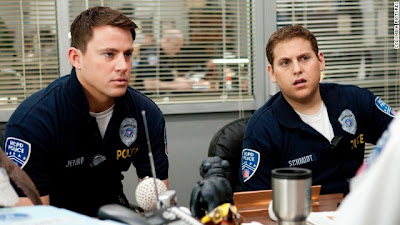Rating: 12a
Duration: 118 mins
Inevitable comparisons to Paul Verhoeven’s fantastic original sci-fi epic will be made, and even though it was released twenty two years previously, Len Wiseman has a lot to live up to if he wishes to satisfy existing fans and entice new ones.
Conceptually, the vision and premise are intriguing: the film begins with slick exposition of how the dystopian, bleak planet functions in the future, and is something audiences can buy into. Visually, it is, at times, noteworthy, but at others is awfully generic: The Colony -- a densely populated section of Earth -- is straight out of Blade Runner; the vehicles and action-orientated vertical chases are similar to Minority Report; whilst the legions of robotic authorities parallel I, Robot or even the clone armies of Star Wars. The result is droplets of imagination, drowned in rivers of creative laziness.
Len Wiseman -- known for his relentless Underworld series -- is simply unable to justify his decision to remake the Philip K Dick story. Rather than utilise the ideas of sci-fi, he simply moulds the existing story into a straightforward chase film, with a climax that possesses little in common with the genre.
In fact, the two hour film is seemingly comprised of four overstretched, adrenaline-fuelled sequences. Glaringly apparent is Wiseman's obliviousness to over-indulgence, the narrative structure scraps any balance of action, exposition and storyline; instead opting for lengthy chase after lengthy chase.
What's more, the little storyline that is included feels like a condescending slap around the chops. Instead of the ambiguity and subtlety the original offered, Wiseman prefers to spoon feed his audience, insulting even the most primitive of minds. For example, a line Hauser (Colin Farrell) has early on -- a seemingly flippant comment about wishing he'd learnt to play the piano -- comes into play when he finds himself in the apartment of the life he has no memory of. We see a piano subtly chopped out of frame (which would have sufficed); followed by a shot of it in full frame; followed by Hauser sitting down and playing, as it reveals its significance in the plot. Surprisingly, we don't hear an echoey, internal monologue along the lines of 'I wish I'd learnt to play the piano' -- because it's that kind of film we're being patronised with.

Whilst the set pieces are action-filled and acceptably entertaining, they do -- as mentioned previously -- tend to drag. Regardless of whether director or editor is at fault, the sentimentalism and debauchery is plain to see, which resonates in lengthy, unnecessary segments that shape the entire film.
The wonderful Bryan Cranston is woefully underused as villain Cohaagen, with Farrell and the eye candy combo of Kate Beckinsale/Jessica Biel offering acceptable, if unimpressive performances. That's not to say it isn't a trio worthy of attention, because the casting are aesthetically pleasing, if nothing else.
Total Recall is a film that thinks it is far cleverer than it actually is. A lack of subtlety, intelligence and ambiguity renders it a story that could take place within any genre, dispelling all appeal of a sci-fi adventure. The trouble is that it takes itself far too seriously, yet insists on including numerous clunky references to Verhoeven's tongue-in-cheek masterpiece, as well as cringeworthy dream puns littered throughout the cheesy dialogue.
All life has been sucked out of the satirically edgy original in favour of a straight-cut attempt at a thriller. However, without reference to its predecessor, it works on the most basic of entertainment levels. In principle it is a needless reimagining of Verhoeven's, and more significantly, Dick's work; serving merely as a modern update for non-savvy audiences in search of a popcorn flick.
N.B. Unsurprisingly, there's a nod to the three-breasted woman, who's not only heavy-handedly plonked into a random scene, but appears to be the only mutant in existence. Odd.











































